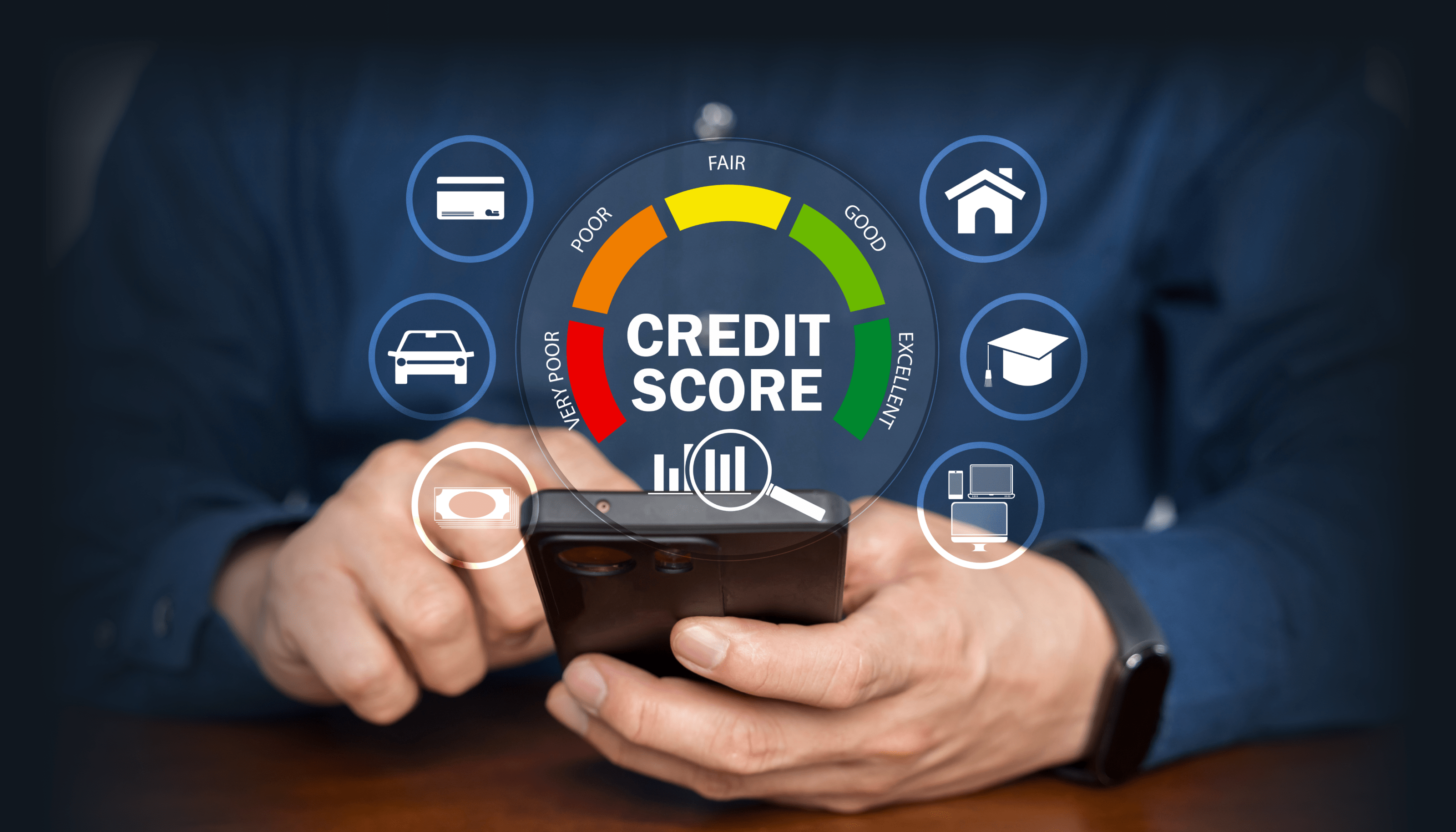Introduction
A good credit score is essential for securing favorable terms on loans, credit cards, and other financial products. It can affect your ability to get approved for a mortgage, car loan, or even a job. If your credit score is low or you have a limited credit history, you may find it challenging to qualify for the best rates and offers. One way to improve your credit score is by using loans strategically.
In this article, we’ll explore how you can use different types of loans to build your credit score and improve your overall financial standing. Whether you’re new to credit, looking to repair a damaged score, or trying to boost your existing score, the right loan can help you make significant strides in your credit journey.
1. Understand How Loans Impact Your Credit Score
Before diving into how to use loans to build your credit score, it’s important to understand the factors that influence your score. The most common credit scoring model, FICO, considers five key components:
- Payment History (35%): On-time payments are the most important factor in your credit score.
- Credit Utilization (30%): The ratio of your credit card balances to your credit limits.
- Length of Credit History (15%): The longer your credit history, the better.
- Types of Credit Used (10%): A mix of different credit types, such as credit cards, mortgages, and installment loans.
- Recent Credit Inquiries (10%): Frequent applications for credit can negatively affect your score.
Loans can help you improve your credit score by enhancing your payment history and credit mix. However, it’s important to use them responsibly to avoid further damaging your score.
2. Use a Credit Builder Loan
A credit builder loan is designed specifically for people who are looking to build or improve their credit score. These loans work a little differently from traditional loans. Instead of receiving the money upfront, you make regular monthly payments into a savings account or a certificate of deposit (CD). At the end of the loan term, the lender releases the funds to you, minus any interest and fees.
- How it helps: Credit builder loans report to the credit bureaus, so as long as you make your payments on time, it can help build your payment history and increase your score.
- Considerations: These loans usually have low loan amounts and are short-term. While they help build credit, you won’t have access to the funds until the loan is paid off.
Tip: Look for credit builder loans from credit unions or online lenders that report to all three major credit bureaus (Equifax, Experian, and TransUnion).
3. Apply for a Secured Loan
A secured loan is a type of loan that requires collateral, such as a car, savings account, or home. Secured loans are generally easier to get than unsecured loans because the lender has the added security of the collateral.
- How it helps: By taking out a secured loan and making timely payments, you can improve your credit score. The lender will report your payment history to the credit bureaus, helping to build your credit profile.
- Considerations: The primary risk of a secured loan is that if you default on the loan, the lender can seize the collateral. Make sure you’re comfortable with the terms and can make the payments before taking out a secured loan.
Tip: If you don’t have a lot of assets, consider a secured credit card, which works similarly to a secured loan. You deposit money as collateral, and the card issuer reports your payments to the credit bureaus.
4. Get a Personal Loan for Debt Consolidation
If you already have multiple debts with high interest rates, consolidating them with a personal loan can be an effective way to improve your credit score. A personal loan allows you to pay off your high-interest debts, leaving you with one monthly payment at a potentially lower interest rate.
- How it helps: By consolidating your debt into one loan, you can reduce your credit utilization ratio (which is a significant factor in your score) and ensure all debts are paid on time.
- Considerations: Be sure to choose a personal loan with favorable terms, including a lower interest rate than your existing debts. Failure to make timely payments on the new loan can hurt your credit score.
Tip: Look for a personal loan with no fees and a low interest rate. If you can, try to pay off the loan early to reduce interest costs and improve your financial position.
5. Use an Installment Loan Responsibly
An installment loan is a type of loan where you borrow a specific amount of money and repay it in fixed monthly payments over a set period. Examples of installment loans include auto loans, student loans, and mortgages. When used responsibly, these loans can significantly improve your credit score.
- How it helps: As long as you make on-time payments, installment loans help establish a positive payment history and improve your credit mix (since installment loans are a different type of credit than revolving credit, such as credit cards).
- Considerations: Always make sure you can afford the monthly payments before taking out an installment loan. Missing payments can negatively affect your credit score and lead to additional fees.
Tip: If possible, set up automatic payments for your installment loan to ensure you never miss a payment.
6. Make Timely Payments
One of the most effective ways to build your credit score using any loan is by making timely payments. Your payment history has a significant impact on your credit score, so consistently paying your loans on time will help you build a positive credit history.
- How it helps: On-time payments show lenders that you are a responsible borrower, which can lead to a higher credit score over time.
- Considerations: Late payments can remain on your credit report for up to seven years, severely damaging your score. Set up reminders or automatic payments to ensure you never miss a due date.
Tip: If you’re struggling to make payments, contact your lender to discuss options such as deferment or restructuring. Ignoring late payments can make the situation worse.
7. Avoid Missing Payments and Defaulting
While it’s important to make on-time payments, it’s equally important to avoid missing payments or defaulting on your loan. Defaulting on a loan, especially for a long period, can have a devastating effect on your credit score and remain on your credit report for up to seven years.
- How it helps: Maintaining consistent, timely payments on your loans is essential for building a good credit score. It also ensures you avoid the serious consequences of defaulting on a loan.
- Considerations: Defaulting on loans can lead to additional fees, legal action, and long-lasting damage to your credit score.
Tip: Always stay in communication with your lender if you’re having trouble making payments. Many lenders offer assistance programs or deferment options.
8. Consider a Co-Signer
If you have a limited or poor credit history, getting a co-signer with a stronger credit profile can improve your chances of loan approval and help you get a lower interest rate. A co-signer agrees to be responsible for the loan if you default, which reduces the lender’s risk.
- How it helps: Having a co-signer with good credit can increase your chances of loan approval and help you secure better terms, such as a lower interest rate. Making on-time payments will also help build your credit history.
- Considerations: A co-signer is taking on significant risk. If you fail to make payments, it can damage both your and their credit score.
Tip: If possible, take out loans with a co-signer to secure better terms, but be sure to maintain responsibility for your payments.
9. Use a Loan to Diversify Your Credit Mix
Your credit score benefits from having a diverse range of credit types, including revolving credit (credit cards) and installment loans (personal loans, mortgages, auto loans). Taking out a loan that adds diversity to your credit profile can improve your score.
- How it helps: Lenders like to see that you can handle a variety of credit types responsibly. A mix of credit types can boost your credit score over time.
- Considerations: Avoid taking on unnecessary debt just to improve your credit mix. Only borrow what you can afford to repay.
Tip: If you primarily have revolving credit (such as credit cards), consider adding an installment loan to your credit profile. However, don’t take on more debt than you need.
10. Monitor Your Credit Score Regularly
Monitoring your credit score is essential for tracking your progress and identifying areas where you can improve. Regularly checking your score will also help you spot any errors or fraudulent activity that could harm your credit.
- How it helps: Knowing your credit score allows you to see how your loans are affecting your credit profile. It also helps you track changes and make adjustments to your financial behavior if necessary.
- Considerations: Use free credit monitoring services to keep an eye on your credit report and score. Many credit card issuers also offer free access to your credit score.
Tip: Set up alerts or sign up for free credit monitoring services to stay on top of your credit health.
Conclusion
Using loans to build your credit score requires a strategic and responsible approach. By taking out the right types of loans, making timely payments, and avoiding excessive debt, you can improve your credit score over time. Whether you choose a credit builder loan, a personal loan, or an installment loan, each loan can serve as a valuable tool for enhancing your credit profile.
Remember, the key to building your credit score with loans is consistency. Make on-time payments, avoid taking on more debt than you can handle, and monitor your progress to see improvements in your credit score.

